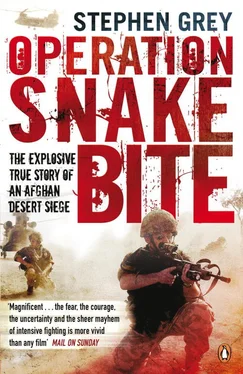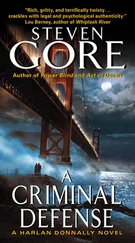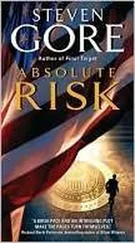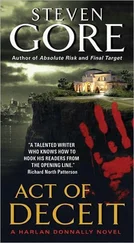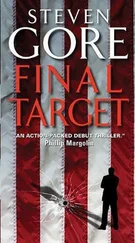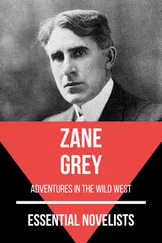Lastly, Musa Qala had to be a strategic victory, a blow to the morale and plans of the Taliban and a boost to the morale both of the Afghan nation and of the western nations whose men and women were fighting here. Heavy casualties – whether of innocent civilian or NATO troops – could all turn a tactical victory into a strategic defeat (just as the British prime minister was flying into the country).
The plan Mackay outlined to achieve that victory was not, then, a conventional one. The key emphasis – as it was when Chris Bell’s Warriors first crossed into the desert on 3 November – was ‘influence’.
To avoid the destruction of an urban battle, the Taliban had to be persuaded to flee the town, to realize their defeat was inevitable. Psychological pressure needed to be ramped up not only through the step-by-step escalation of actual combat power but also by spreading the fear of NATO strength by using the media, by using deception and ruse, and by using various discreet channels to tell key Taliban commanders it would be suicidal to join this battle. The message to send to the Taliban was the same as when this all started: ‘We Are Coming to Get You!’
For the soldiers listening, the pressure was intense – above all, for the combat commanders who were actually going to run the battle. What they heard was not so much a detailed set of orders but more of a vision. There was a clear plan for the build-up to battle, a sense of what should happen afterwards, but, as one key British commander put it, ‘there was a big gap in the middle’, in other words, how to fight this thing.
After the formalities, a detailed discussion began that quickly became heated. Bell, who was watching, wondered how the Americans would react to this very British scene. ‘The Americans are very hierarchical. They’ve worked it all out. There is not much discussion – and, if there is, it’s offline [in private]. But this was very much officers saying, “I don’t think that would work.”’
As the debate developed, the Americans began pitching in too. The talk came down to the heart of Mackay’s vision: of preventing the destruction of the town. Mackay – and his NATO superiors – wanted to put a ‘no-go zone’ around the town centre into which no heavy weapon or airstrike could be launched without higher approval. The Americans – led by Colonel Mennes – thought it a nonsense. If his troops were fired on from the district centre then they had the right of self-defence. No one was going to accuse his men of taking the issue of collateral damage lightly. But the enemy had to be struck where you found it.
‘If I was being fired upon from inside Musa Qala, I can use anything and everything to hit that target,’ said Major Guy Jones, the 1 Fury operations officer. ‘That’s not the same Rules of Engagement as the Brits have. So that was a huge friction point,’ he recalled. ‘General Mackay said, “No, you have to gain approval for us to strike.” And Colonel Mennes’ point was, “No I don’t if it is self-defence, if my guys are taking fire.”’
Chris Bell, who was a friend of Jones from staff college, remembered watching a smartly dressed staff officer from Regional Command South, the higher headquarters in Kandahar. He was declaring – again and again – that his boss, the British Major General Jacko Page, would want to authorize each and every air strike on the centre. ‘He was standing there saying, “Well, I think my commander, General Page, will want to keep control of the centre of Musa Qala, and he will decide whether you can use certain types of weapons or not.” All the commanding officers were saying, “Well that’s a crazy idea,” particularly the American commander, who was saying, “I promise you, I’m not going to do this.” And the staff officer was saying, “No, no!”’
Bell, who was sporting a full desert-grown beard, remembered looking at the officer dressed for headquarters. ‘He was there with his little lanyard on – I remember looking at his lanyard thinking, “You idiot!”’
As the discussion degenerated, Bell watched as each of the key combat commanders gradually sloped off and left the staff officer to his argument. ‘The whole thing sort of broke down,’ he said. ‘They gathered in their own corner and began to work out how exactly this battle would be fought.’
Mennes finally ended up speaking to Brigadier Mohaydin. And that was where he finally worked out what the Afghans wanted to do.
‘Hey, boss,’ said Mennes as they shook hands. ‘They say they want me to go in there with you. What are you needing me to do?’
Mohaydin gave him a puzzled look.
‘I can’t do this on my own. You go in and we’ll be partners.’
‘I agree we need to be partners. I said we will get you in there. You come up and meet up with us and we will get you in there.’
It was clear, recalled Jones, that Mohaydin wanted the US troops to go much further than the plan on paper actually called for. Mohaydin, it was clear, had no desire or intention to do much fighting. No US troops nor even any NATO troops were supposed to enter the town. But Mohaydin had his own idea: ‘I’m not going into town. At night, you all clear it, and make sure it’s good, and I’ll go in, in the morning.
‘OK, got it,’ said Jones.
Mennes for now wasn’t spelling out where his men were going. But he told Mohaydin, ‘Hey, when I think they’re gone, you just walk right through!
In the next few days, a cabal of commanding officers – Mennes, Smyth-Osbourne, Lieutenant Colonel Stuart Birrell, the commanding officer of 40 Commando and Battle Group North, and Lieutenant Colonel Simon Downey, the 2 Yorks commanding officer – got together at Camp Bastion and worked out a plan for how they would coordinate the manoeuvre of all these thousands of troops. Mackay’s planning officer, Major Geoff Minton, was at those meetings. And then Mackay flew over and heard their conclusions – and gave it his backing.
Throughout this process, the Afghans had a way of letting the NATO commanders know who ultimately mattered.
Meeting in Birrell’s tent, one of Mohaydin’s kandak commanders, Colonel Roussal, walked in to demand, ‘Who’s in charge here?
‘I am,’ said Birrell.
‘Where’s the coffee and tea then?’
Sergeant Lee ‘Jonno’ Johnson was going to Musa Qala. Of that he was certain. But was he going to come back alive? He was getting spooked.
He had come back from Kajaki now and had been due to go on R&R. He had been sitting at the Shorobak camp waiting to go when the news came in of the Musa Qala op. He’d had a night with his brother to mull things over. Lance-Corporal Don Johnson was just out of Sangin and was due up in Kajaki, so his brother gave him a brief.
Jonno took out a map of Kajaki and explained the lie of the land up there and who the main people were. ‘It was a really good handover,’ remembered Don, ‘and then the next morning I flew to Kajaki to take his place, and that’s how it worked.’ Before he left that night, Jonno talked about himself.
‘I’ve got the option of going to Musa Qala rather than going on leave. So what do you think I should do?’
He always used to come like that and ask Don for advice. Don thought of his elder brother as a little immature, however good a soldier he was. As kids, thought Don, they had hardly known each other. It was being together in the army that had made them close. That night, for the first time in their lives, they said they loved each other.
‘What do you think I should do?’ said Jonno.
‘It’s up to you. This is the biggest battle the Battalion has ever had, and if you missed out on it, you would kick yourself for ever and ever… If you do go and you get hurt, you’re probably going to regret it for the rest of your life… You can’t ask me what I think, I only tell you what you need to hear.’
Читать дальше
